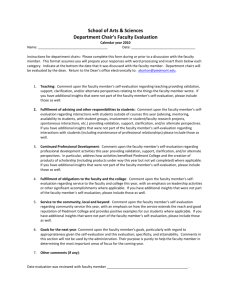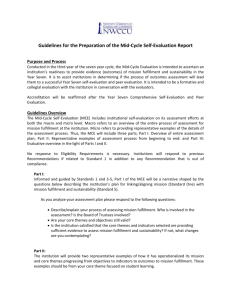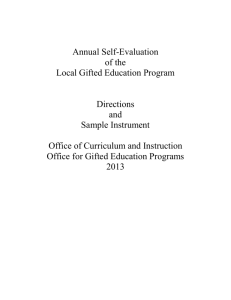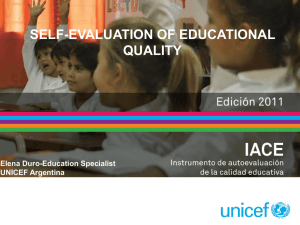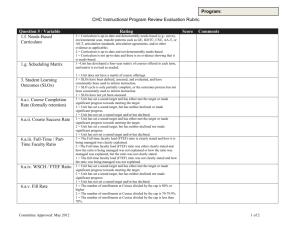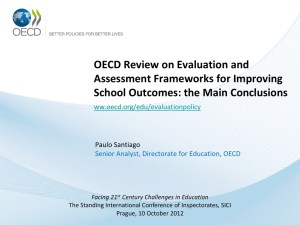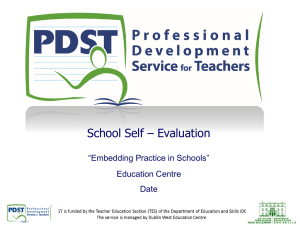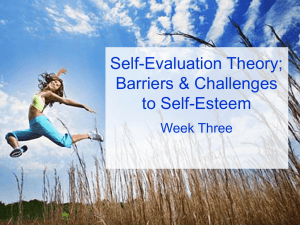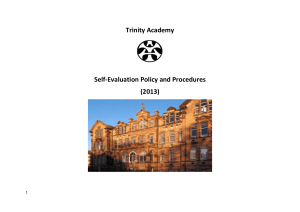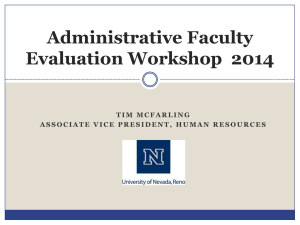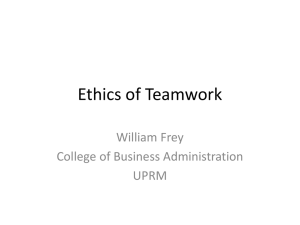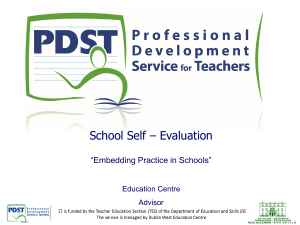Wolffe: Trans Competencies Checklist Powerpoint
advertisement
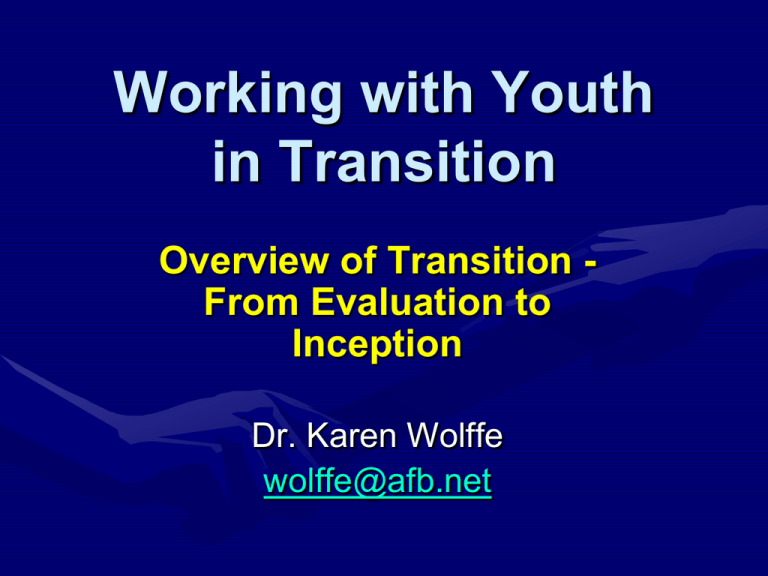
Working with Youth in Transition Overview of Transition From Evaluation to Inception Dr. Karen Wolffe wolffe@afb.net From Evaluation to Inception • Begin with the end in sight: What are the student’s expectations for life? – relationships, work, living arrangements, recreation, etc. • Evaluate the student in natural environments whenever possible to determine skill levels & knowledge Transition Competencies Checklist • How tool is administered & rationale • Timeline for completion—annual • Explanation of coding—forced choice • Time commitment—20-30 minutes • Asterisks explained for facilitator • Reminders: No “right/wrong” answers, self-evaluation tool, add to career portfolio Transition Competencies Overview • Student self-evaluation tool • Practitioner evaluation tool • Parent/SO evaluation tool Practitioner & SO Tools • Parallel the Student Evaluation Tool—same ten competencies are assessed • Completed hard copies can be compared using Word or Excel files in braille or print • Can form the basis for a team discussion (led by the student, if possible) concerning readiness for employment Student Self-Evaluation Tool • An understanding of work based on real life experiences – Youngsters learn about work through personal experiences at home (chores), community activities (helping out at civic or organizational functions), and school (active involvement in classroom or school projects) Student Self-Evaluation Tool • Application of leisure & socialization skills – Addresses the need for youth to develop & engage in interpersonal relationships – Also considers young people’s needs to engage in healthy, enjoyable activities during their free time Student Self-Evaluation Tool • Application of problem solving skills – Focuses on the need for youth to learn how to recognize that they have difficulties or problems & take logical steps to resolve them – Youth are also asked to indicate to whom they go for assistance, if they are unable to independently resolve a problem Student Self-Evaluation Tool • Application of self-advocacy skills – Focuses on the importance of young adults addressing their disability-related needs with others in a proactive & positive manner – Encourages youth to assume responsibility for their own affairs (setting medical or vocational appointments, for example) Student Self-Evaluation Tool • Application of compensatory skills – Addresses alternative techniques or disabilityspecific skills (O&M, reading & writing with braille or optical devices, using assistive technology, etc.) that young people need to master in order to live & work without unnecessary external supports Student Self-Evaluation Tool • Knowledge of career options & sources of information – Relates to the student’s need to learn about a broad range of jobs through resources available nationally & locally (popular career fields, specific companies in near locale that are hiring—whom to contact & where to go) Student Self-Evaluation Tool • An understanding of levels of ability and impact with regard to placement – Helps young adults analyze their need for assistance in the job seeking area and how they learn best on-the-job Student Self-Evaluation Tool • Mastery of career counseling content areas – Focuses on self-awareness, career exploration, job seeking skills, job maintenance skills, and employment skills Student Self-Evaluation Tool • Evidence of participation in work experience opportunities – Addresses the need for young adults to have as many work experiences (paid or unpaid) as possible while they are still in school Student Self-Evaluation Tool • An understanding of employer concerns – Addresses the need for young adults to be familiar with employers’ greatest concerns about hiring individuals with visual disabilities & understanding how to allay their concerns Correlation of Resources to Transition Competencies Checklist gets you to inception! Resources Books/curricula: • Skills for Success • Navigating the Rapids of Life: The Transition Tote System • Transition Planning for Students with Visual Disabilities • Preparing for Work: Career Exploration, Job Seeking Skills, & Job Keeping Skills for Students with Disabilities Resources Chapters: • Growth and development of youths & Career education for children and youths with VI (Foundations of Education) • Transition for Students who are Blind or have Low Vision (Handbook of Transition for Youth with Disabilities) Resources Chapters: • Transition planning and employment outcomes for students who have visual impairments with other disabilities (Educating students who have visual impairments with other disabilities) Resources Chapters: • Transition planning for the world beyond school (A Parents’ Guide to Special Education for Children with Visual Impairments) Resources Articles: • The transition from school to adult roles and responsibilities (Insight) • Employment-related experiences of youths who are blind or visually impaired: How are these youths faring? (JVIB) Resources Articles: • Skills for success: Career education for young people with sight problems (Insight) • The status of Canadian youth who are blind or visually impaired: A study of lifestyles, quality of life and employment (Elsevier International Congress Series) Resources Articles: • The social network pilot project: A quantitative comparison of the lifestyles of blind, low vision, and sighted young adults (JVIB) • Career education for students with visual impairments (Re:View) Thank you for your interest and participation!
